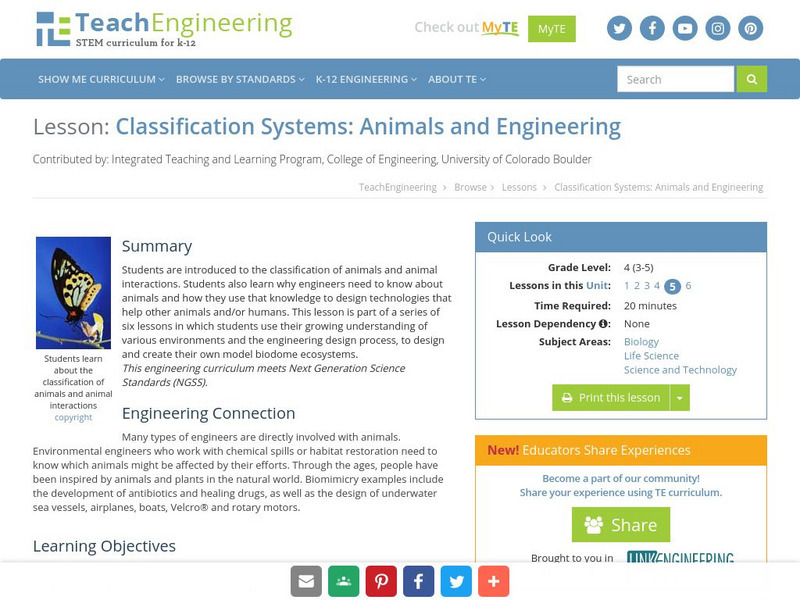Curated OER
Stop the Bleeding
Students explore various parts of the heart and blood vessels . They begin with an overview of the components of the cardiovascular system. They see a cross section of an artery and watch how a blood clot develops.
Curated OER
Aerobic and Anaerobic Conditioning
Students view the A.D.A.M. computer simulation of aerobic and anaerobic exercise. They break into groups and members brainstorm and list as many aerobic and anaerobic exercises as possible in five minutes.
Curated OER
Know your Heart Parts and Functions
Students put together a 3-D interactive "heart" puzzle and learn the names of heart parts.
Curated OER
Estimating Prices
Students practice making reasonable estimates. For this consumer math, students round purchase prices of items to estimate the total cost. Students practice using metal computations to arrive at estimates.
Curated OER
The More Things Change
Second graders discuss change in cities over time. They view pictures of a city as it has changed over time and then compare city pictures of the past to those of a modern city today. In preparing for a guest speaker who will come and...
Curated OER
Using the Tools in Your Community
Third graders research a profession in their community that uses tools to help the community. For this professions lesson plan, 3rd graders complete computer research to research the profession and present it to the class.
Curated OER
Are You One of Us?
Students compare and contrast insects and arthropods, identifying characteristics of each. In groups, they sort pictures of arthropods into the five different classes of arthropods. They also sort pictures into insect and non-insect piles.
Curated OER
Creating a Bibliography
Third graders review the basic structure of a bilbliography and its importance in writing. They create a bibliography of materials used to complete a written report, and power point slide show and use the computer lab to create a final...
Curated OER
What do Bison Eat?
Students identify the three major categories of food eaten by bison. In groups, they collect examples of grass and forbs and press them. They complete a chart of the percentages of each type of food the bison eat in a day. They...
Curated OER
DNA the Easy Way (and "Gram Stain" Without the Mess)
Students visualize DNA from cells and explain the basis and importance of the Gram-stain reaction and to perform the KOH test equivalent.
Curated OER
Earthworms
Fifth graders research the earthworm and write a one paragraph report on its anatomy and habitat. They learn about worms and how to dissect them through Video Streaming and virtual dissections, along with actually dissect a worm as...
Curated OER
All in the (Insect) Family
Students participate in a series of activities in order to explore the diversity of insects. They explore how insects are grouped and categorized.
Curated OER
Inside Out: An Up-Close Look At Foods We Eat
Fourth graders identify the origins of meats and vegetables consumed by humans on a daily basis. They classify foods (meats, dairy products, grains...) and create a food pyramid.
Curated OER
Birds
Students study birds and examine the idea that they evolved from reptiles or dinosaurs. In this birds instructional activity students divide into groups and research one side of the debate, then at the end have the students debate...
Alabama Learning Exchange
Botany Scavenger Hunt Where's the Ginkgo?
Learners use a science journal to log plants that are native to Alabama. In this plant lesson plan, students identify characteristics, describe environments, and classify the plants that they find.
Curated OER
Introduction To Pests
Students investigate common pests and match pests to their respective pictures. In a group discussion, students explore the basic needs of pests and share personal pest stories. They examine common self-protection measures. Using the...
Curated OER
Animal Playing Cards
Young scholars research animal characteristics including information about mammals, reptiles, birds, and fish. They place the information into a database and then, create playing cards using the information.
Curated OER
Sharkland Wiki
Students, while researching the waters around southern Africa and viewing a video of the episode "Sharkland" from Thirteen's series NATURE, critique reliability of online resources and analyze the various components of a wiki. They...
ArtsNow
Arts Now Learning: Classification of Animals: "Connect Your Animal Show" [Pdf]
Fifth graders learn about animal classification by reviewing the taxonomy system, then looking at pictures of animals as if they were scientists, acting out an animal's characteristics, then classifying their animal.
Other
It's All About What's Inside. Classification and the Tree of Life [Pdf]
In this science lesson, young scholars look at how animals have traditionally been classified in a tree of life diagram by examining the characteristics of plastic eggs. They then analyze the genetic code assigned for each egg and look...
TeachEngineering
Teach Engineering: Animals and Engineering
Students are introduced to the classification of animals and animal interactions. Students also learn why engineers need to know about animals and how they use that knowledge to design technologies that help other animals and/or humans....
Biology Corner
Biology Corner: Taxonomy Project
A teacher lesson plan that allows young scholars to pretend to be an alien taxonomist working with fictitious animals to create their scientific name, classification chart, design a dichotomous key, and create a food web.
Other
Illinois Wesleyan Univ.: Tardigrade Species Distribution Project: Lesson Plan
This lesson plan was for classes that participated in a research project on tardigrades that took place in 1999. Tardigrades, also known as water bears, are fascinating, tiny creatures that can survive under the most extreme conditions....
California Institute of Technology
Infrared Zoo Lesson 1: A Trip to the Infrared Zoo
Students will use infrared images to classify different animals. Students will learn more about infrared imaging and the information it can reveal. This activity is guaranteed to activate great class discussion.


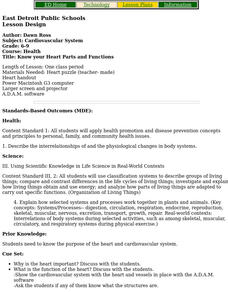




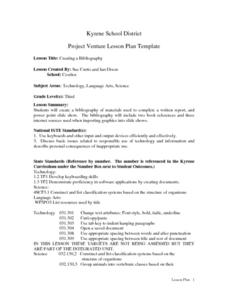
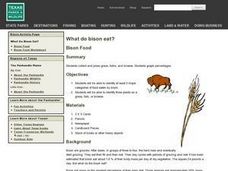


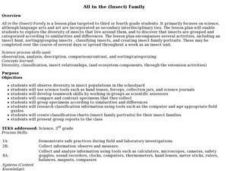
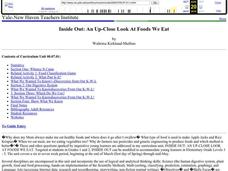





![Arts Now Learning: Classification of Animals: "Connect Your Animal Show" [Pdf] Lesson Plan Arts Now Learning: Classification of Animals: "Connect Your Animal Show" [Pdf] Lesson Plan](https://d15y2dacu3jp90.cloudfront.net/images/attachment_defaults/resource/large/FPO-knovation.png)
